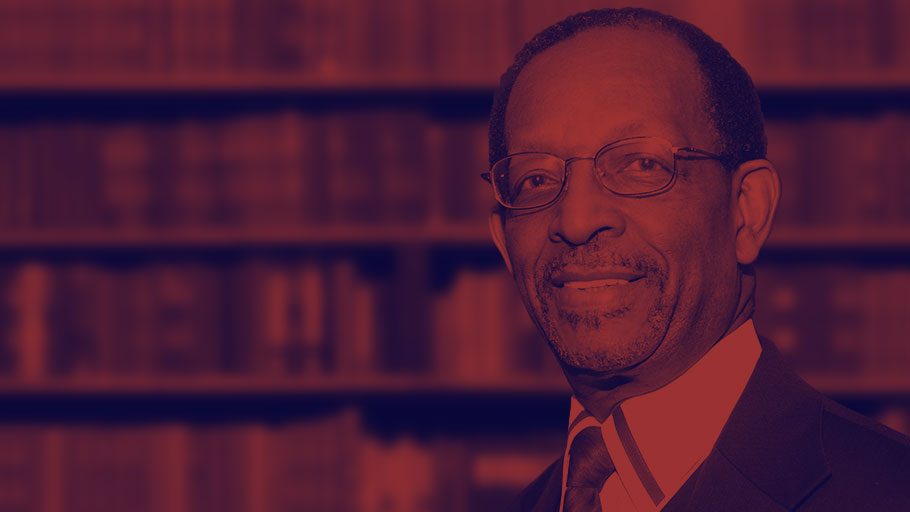In a recent article I called for economic sanctions against Florida to compel business and political leaders in that state to change the “Stand Your Ground Law” which provided the basis for the acquittal of George Zimmerman in the murder of Trayvon Martin. There are times when there is a convergence of ideas, a meeting of minds, such that a particular strategy has the potential to galvanize a movement to achieve a major victory. It appears that such a convergence of ideas has occurred around at least one strategy to translate the anger and frustration over the Zimmerman verdict into justice in the Trayvon Martin tragedy – Economic Sanctions/Boycott Florida. The idea is not a Ron Daniels idea or Institute of the Black World 21st Century (IBW) call but one that is on the minds of Black people all across the country.
Dr. Patricia Newton, President Emeritus, National Association of Black Psychiatrists was so outraged by the Zimmerman verdict that she cancelled a $1 million dollar contract she was about to sign for a conference in Florida. When I asked an elderly Black professional couple I met at Penn Station in Baltimore [who were returning from a conference in Jacksonville, Florida] whether they would be going back to Florida next year… Before I could get the words out of my mouth, the wife defiantly proclaimed that they discussed the murder of Trayvon Martin at the conference and had already resolved that they would not hold another convention in that state until there is justice in this case! Then music legend Stevie Wonder issued a statement at a concert in Canada proclaiming “until the Stand Your Ground Law is abolished, I will never perform there again.” Since his pronouncement Eddie LaVert, Stephanie Mills, Dionne Warwick and Mary Mary are among the artists who have publicly come out saying they will not perform in Florida until this abhorrent law has changed. While celebrities like Stevie Wonder provide credibility for the Boycott, it will be the actions of the multitude of conscious/committed convention goers, vacationers and consumers that will make the campaign effective. Economic sanctions against Florida is an idea whose time has come.
Just as Katrina ripped the scab off and exposed the raw naked structural/institutional racism in distressed Black neighborhoods in America like those in New Orleans, the murder of Trayvon Martin has ripped the scab off the persistent phenomenon of the criminalization of young Black men, racial profiling, stop-and-frisk and the structural/institutional racism in America’s criminal justice system. The problem is that despite episodic protests and periodic mobilizations, there has not been a persistent sense of urgency in Black America about these issues. The murder of Trayvon Martin may be a decisive turning point.
One week after the Zimmerman verdict, rallies and prayer vigils were held across the country to demand that the Justice Department bring criminal charges against George Zimmerman for violating Trayvon Martin’s civil rights. While we agree that this is a righteous strategy, there is a high probability that the Justice Department will not find sufficient racial animus in the proceedings to justify bringing charges. However, even if the Justice Department does find sufficient cause to bring charges, I contend that the economic sanctions/boycott Florida campaign is necessary.
At the end of the day, not only must we seek a conviction of Zimmerman, we must also indict and fight to change the law that is so flawed that it would permit an armed adult to pursue an unarmed teenager deemed “suspicious” and permit a grown man to kill a kid who fearfully sought to stand his ground against a menacing stranger. Fighting to change this flawed law is about justice for Trayvon Martin, but it is also about all of the Trayvons in the state of Florida and across the nation who are victims of criminalization and racial profiling. It is about Black people consciously and collectively standing our ground against the attacks on the gains of the civil rights/human rights/Black power movements, the abandonment and disinvestment in distressed Black communities and the daily indignities we have quietly suffered for far too long. In his last speech the night before he was assassinated in Memphis, Dr. Martin Luther King urged Black people to use boycotts to achieve justice. He said, “now we must kind of redistribute the pain.” As IBW said in its Press Release on this issue, “Blacks and all people of conscience and good will should inflict some non-violent pain on the state of Florida and keep inflicting it until business leaders and the politicians scream for help and plead for the economic sanctions to be lifted.” But, to achieve our goal we need a targeted (not scattered/shotgun) approach to succeed.
The major component of the campaign should be to shut off tourism to Florida. This means Black organizations should not schedule conferences/conventions in that state until the law is changed. Groups that have already scheduled conferences six months to a year out should seek to cancel the agreements and notify the venues that Black people no longer feel safe to travel to Florida, particularly with their sons. An option is to hold conferences.
Dr. Ron Daniels is President of the Institute of the Black World 21st Century and Distinguished Lecturer at York College City University of New York. His articles and essays also appear on the IBW website www.ibw21.org and www.northstarnews.com . To send a message, arrange media interviews or speaking engagements, Dr. Daniels can be reached via email at info@ibw21.org.















